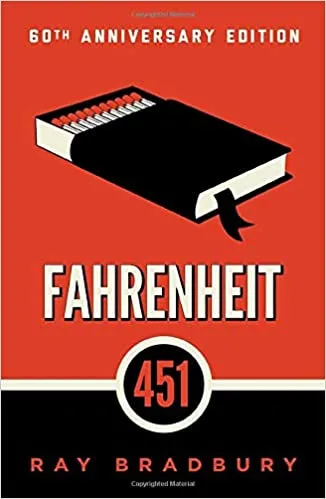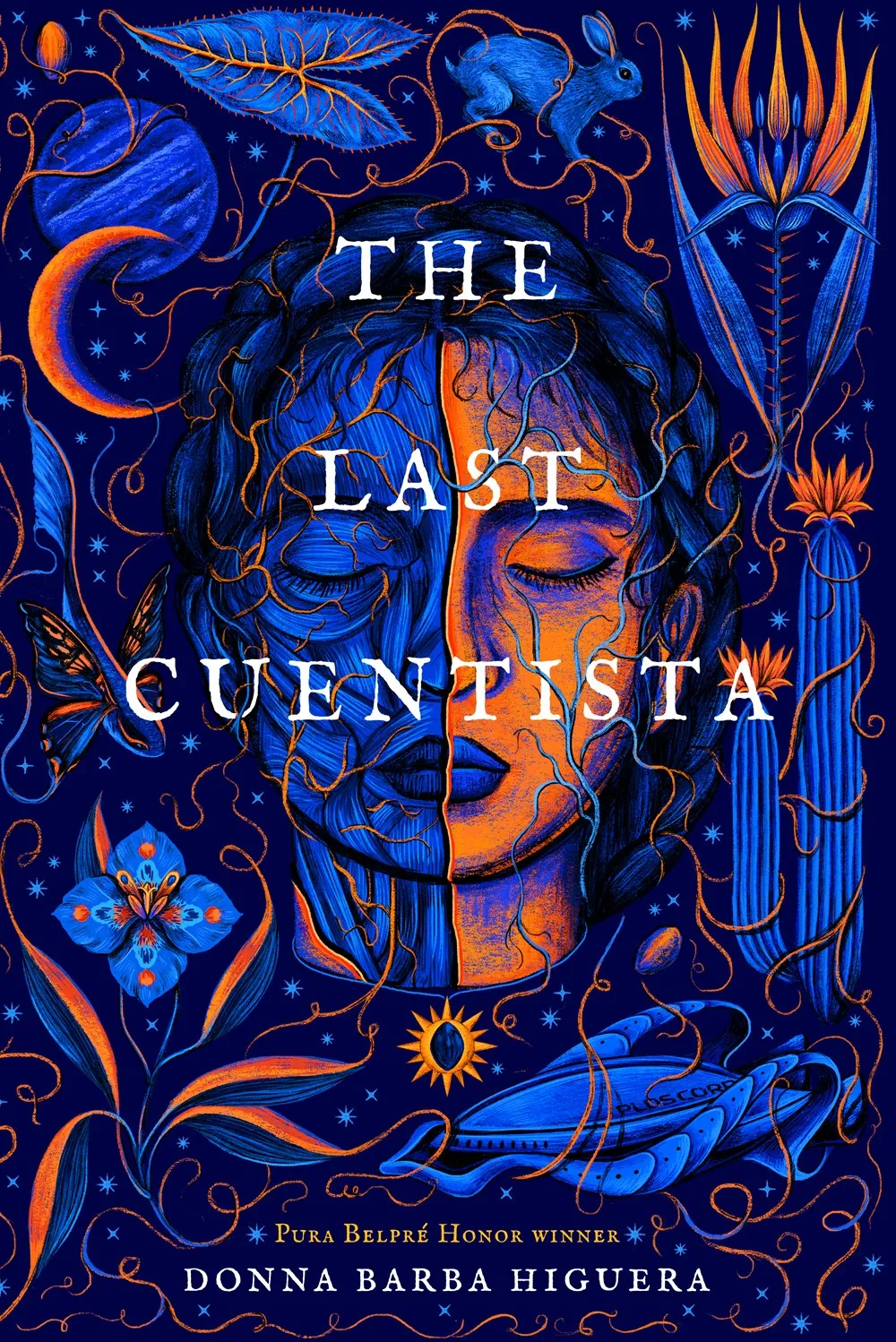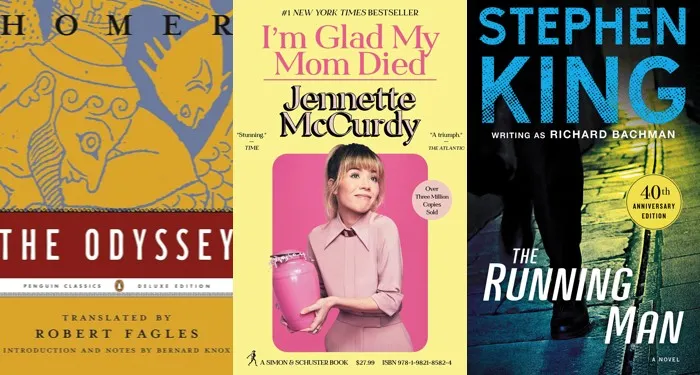Grace Lapointe’s fiction has been published in Kaleidoscope, Deaf Poets Society, Mobius: The Journal of Social Change, and is forthcoming in Corporeal Lit Mag. Her essays and poetry have been published in Wordgathering. Her stories and essays—including ones that she wrote as a college student—have been taught in college courses and cited in books and dissertations. More of her work is at https://gracelapointe.wordpress.com, Medium, and Ao3.
Over the last several years, conservative groups have proposed laws that ban certain books from libraries or even penalize librarians. These bills depict books about LGBTQIA+ people as inappropriate for kids and claim that learning about systemic racism scapegoats white kids. People often justify censorship by claiming to protect kids. Of course, some materials are not intended for kids, but librarians already take that into account.
Many people have said that these attempts at censorship and the erasure of history could come straight from a dystopian novel. Though these comments make sense, it’s often the other way around. Speculative fiction, dystopian or not, is often influenced by historical oppression. For example, in Celeste Ng’s 2022 novel Our Missing Hearts, the PACT–a jingoistic movement–targets Asian Americans. The novel’s historical influences include the internment of Japanese Americans during World War II and the increases in racist conspiracy theories and hate crimes targeting Asian people since 2020.
In speculative fiction, societies with totalitarian governments often suppress reading, books, or libraries. In Ray Bradbury’s 1953 novel Fahrenheit 451, all books are outlawed and burned. Bradbury’s premise was influenced by Nazi book burnings, which targeted Jewish and LGBTQIA+ authors. In The Sound of Stars, a 2020 novel by Alechia Dow, extraterrestrials named Ilori colonize Earth and outlaw libraries as part of their suppression of human cultures.
When reading speculative fiction on this topic, it’s relevant to ask: is all reading banned or only certain forms of critical thinking or knowledge? Who is forbidden from reading and why?
Check Your Shelf
Sign up to receive Check Your Shelf, the Librarian’s One-Stop Shop For News, Book Lists, And More.
Keep reading for an excerpt discussing why it’s worth pursuing “underconsumption” in your reading life!
In books with all human characters, it’s common that only privileged people are literate, while oppressed classes are the ones forbidden from reading and writing. This deepens inequalities and allows propaganda to dominate. In both fiction and in real life, banning books by marginalized people and forbidding them from reading are part of the dehumanization of that group. We see this off the page, too, as Moira Marquis wrote at LitHub in 2023. Many US prisons, for example, ban books on fantasy and magic—an attempt to limit people’s imaginations while they’re incarcerated.
There are potential problems with focusing on oppression in speculative fiction. In The Handmaid’s Tale by Margaret Atwood, men are literate, while almost all women are forbidden from reading or writing. As Clarkisha Kent and other writers have pointed out, the novel imagines the rape and enslavement that happened to centuries of Black women as happening mostly to white women.
In many fictional dystopias, even if characters can read, any material that isn’t state propaganda is suppressed. The Giver by Lois Lowry is a middle grade dystopian novel set in a world where all the arts are banned. Emotions are medically and socially suppressed. When Jonas is selected as the next Receiver of Memory, he will become the only person with cultural knowledge from previous societies. People in his society can read, but only for practical reasons, like schoolwork. His community has tried to eliminate diversity and empathy. To that end, its rulers banned fiction and historical knowledge.
The Last Cuentista by Donna Barba Higuera, another middle grade dystopian novel, takes place mostly on an interstellar flight. The characters remain in stasis for centuries as they travel to a new solar system. The protagonist Petra can read, but she can also download information to her unconscious brain while she’s in stasis. Her society devalues art, reading, and diversity. When she chooses to download a mythology course for her trip, the leaders delete it.
Banning libraries–and reading in general–is an effective and terrifying way information is suppressed in dystopian literature. Destroying books about marginalized people is erasure of their history and the denial of their civil rights. Most characters in dystopian settings have no sense of historical perspective because their rulers have controlled their access to all information.
In fiction, librarians and libraries are often important to resistance movements. In Library Wars, a light novel and manga series by Hiro Arikawa and Sukumo Adabana, local soldiers defend libraries from a totalitarian federal government. In the previously mentioned Our Missing Hearts, librarians hide messages in books and help to reunite children with their parents after they’ve been separated.
Fiction, especially speculative fiction, often comments on the past and the present while warning readers about the future. Censorship is a feature of many real and fictional totalitarian governments. Merriam-Webster even mentions censorship as an example of government control in its definition of totalitarian. Suppressing reading is an insidious way to oppress and control people, whether that means restricting what they read or banning them from reading altogether.
The following comes to you from the Editorial Desk.
This week, we’re highlighting a post discussing why it’s worth pursuing “underconsumption” in your reading life. In this era of amassing special and deluxe editions and crowding your shelves for the Tok, challenge yourself to consider a scaled-back approach to the bookish life. Read on for an excerpt and become an All Access member to unlock the full post.
One of the things that has provided some comfort for me during the recent horrors is underconsumption content on TikTok. Whether it’s Project Pan or the fact that, according to the Fashion Transparency Index, there is currently enough clothing on earth to clothe the next six generations, it’s a welcome break from being told what I should be buying. As a child, I used to adore watching TLC’s Clean Sweep. As an adult, I think I could probably stand to put all of my possessions out on a tarp on the lawn every so often. TikTok is an engine for consumerism, but somehow, it’s managed to plant a seed in my brain that goes against its own interests.
The why of underconsumption is a belief that we simply do not need all of the things that we have. It’s also a good way to build a practice of taking a breath before we chase that dopamine high of buying a new thing, of finding joy in the things that we create for ourselves. It’s made me look at how many of my hobbies don’t lead to the creation of anything new, not even ideas.
Of course, for some of us, underconsumption is an economic necessity. Most of us don’t live the lives we see reflected on our various feeds. With the will-they-or-won’t they of massive tariffs on many products coming in from other countries, the reality is that things are likely to get more expensive. This “trend” is really just showing how to make the most of what you have. Many books on shelves in the United States are printed in China, but are currently exempt from tariffs.
Why am I ruining a pure, good thing for you in these times, you ask? I’m going to try not to. I am simply here to offer suggestions that I myself will have trouble following. We strive for progress and not perfection. I am pretty sure that if I deleted the Libby app right now, heaven forbid, I would have enough unread books in my home to get me through an entire calendar year.
Sign up to become an All Access member for only $6/month and then click here to read the full, unlocked article. Level up your reading life with All Access membership and explore a full library of exclusive bonus content, including must-reads, deep dives, and reading challenge recommendations.





















 English (US) ·
English (US) ·